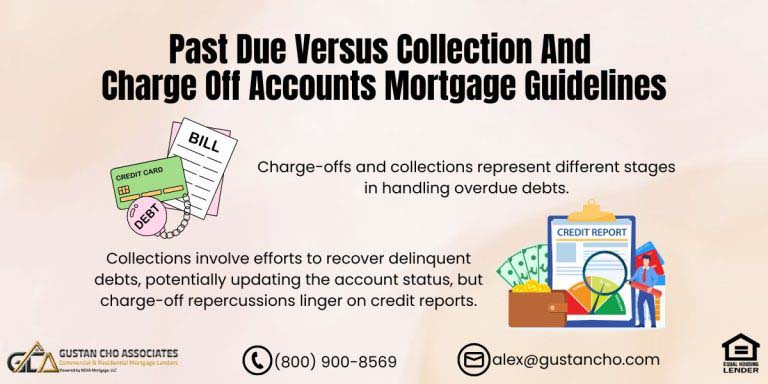In this guide, we will cover 7 ways to defend a debt collection lawsuit. Jobs come with various offerings which might include wrong termination, demotion, or any other wrongful employment action. Such could be non-payment of the owed money, and that is where the employment attorney comes in for the case. It is essential to get an employment attorney from a reputable law firm to have a smooth transition in the case. In this article, we will discuss and cover the 7 ways to defend a debt collection lawsuit by consumers.
7 Ways to Fight Back Against a Debt Collection Lawsuit
Receiving a lawsuit from a debt collector can feel overwhelming, but remember you have options to fight back. Whether the debt is from an old credit card, medical bill, or another account, knowing your legal rights and how to respond can change how things turn out.
In this post, I’ll share seven smart ways to defend yourself against a debt collection lawsuit. Each step is meant to help you through the legal system and protect your finances and credit score from getting worse.
Facing a Debt Collection Lawsuit? Learn Your 7 Defense Options
Understand your rights and the best strategies to defend yourself against a debt collection lawsuit.
Know How the Lawsuit Process Works
To defend yourself, you first need a solid grasp of how the debt collection lawsuit process unfolds. That means understanding when the collector will file the complaint, how many days you’ll have to file an answer, and what evidence you might need to show in court. Familiarizing yourself with these steps makes you less likely to miss a deadline and helps you feel more ready when it’s time to present your side of the story.
Question: Is the Debt Yours
The first step in fighting back is to **question whether the debt is yours. Debt collectors must show that the debt is yours, that you haven’t paid it, and that the amount they claim is correct. If they fail to provide the right documents or proof, the case could be tossed out, or at least the amount you owe could be lowered.
Dispute the Amount Owed
You can also dispute the amount the collector says you owe. They must supply clear proof that the amount is right and that there haven’t been errors or added fees. If they can’t back it up or spot a mistake, you can push back on the debt or work out a lower amount to pay.
Invoke the Statute of Limitations
Every state puts a time limit, known as the statute of limitations, on how long collectors can sue you for a debt. If the debt is older than that limit, you can tell the court to throw the case out; they can’t legally make you pay.
Prove the Debt Isn’t Yours
If the debt doesn’t belong to you, you can fight it. You may show that a different person created it, or it’s a mistaken identity issue. Gather records like credit reports, ID documents, and letters from others to show you don’t owe the money. Handing this proof to the court can turn the claim against you into one you can win.
Prove You Can’t Pay
Showing your financial situation can help. You may be able to prove you don’t have the money, bank accounts, or property to pay the debt. You’ll need pay stubs, bank statements, or other proof of income and expenses. This may not erase the debt, but it can help you argue for a smaller payment or a longer time to pay.
Settle Instead of Going to Court
Another option is to settle. Rather than fight in court for months, you can offer the collector a smaller payment amount to close the case. This is often a one-time payment that is lower than the total debt. If they agree, ask for the new terms in a written agreement. That way, you have proof if questions come up later.
7 Ways to Defend Yourself and Regain Control of Your Debt
If you find yourself facing a debt collection lawsuit, don’t panic. You have clear steps to fight back and safeguard your finances. Start by checking if the debt is valid. The case may get tossed if the collector can’t prove you owe the money. Next, look at the total balance. Dale Elenteny, a senior mortgage loan originator at Gustan Cho Associates says the following about 7 ways to defend yourself facing a debt collection lawsuit:
If the collector added extra fees, interest, or unfair charges, you can push back and demand a corrected amount. Don’t forget the statute of limitations.
If the debt is older than the state’s time limit, you may potentially raise this issue to have the case dismissed. As you defend yourself, keep negotiations open. A fair settlement can end the lawsuit without a judge’s ruling. You don’t have to go through this alone, however. A debt defense attorney can guide you through each step and fight for the best outcome, so don’t hesitate to reach out for help.
7 Effective Ways to Fight a Debt Collection Lawsuit
protect yourself and your assets with proven legal defenses against collection lawsuits.
7 Ways to Defend a Debt Collection Lawsuit by Creditors
On the other hand, the company or the employer might want to defend their case especially when the employee has filed a debt collection lawsuit due to the proceedings from employment termination or any other action that leaves the employer in s stranded place. listed below are tactics one can use to defend the lawsuit.
7 Ways to Defend a Debt Collection Lawsuit: Filing a Response
Once the matter has been placed before the court by the plaintiff, it is vital to respond to the summons and complaint notice through legal means. Failure to respond to the claims renders more avenues for collection, especially from the debt collection agencies. Also, the employment attorney fees, interests to the money owed, and the court fees might be rolled offer to the defendant. Responding within the stipulated time is also crucial.
7 Ways to Defend Debt Collection Lawsuit by Consumer: Proof of the Debt
It is essential to ask evidence of indebtedness from the plaintiff. The debt collector and the employment attorney must provide evidence against the laid allegations. It might be a good case for the defendant if the plaintiff does not have the necessary proof; thus, a settlement might be easy to get.
Statute of limitations Compliance
It is essential to understand that there is a set time when the plaintiff can lodge complaints about debt issues. If the lawsuit is not initiated within the statute of limitations, then the defendant can have an easy way out with claims that the plaintiff did not file at the required time.
7 Ways to Defend a Debt Collection Lawsuit: Filing a Countersuit
The defendant can as well fight the lawsuit using a counterclaim. These claims often arise due to overstepping and violation of the laid outlaws, mostly the Fair debt collection practices Acts. If the plaintiff and the employment attorney do not act according to the provisions, the defendant can get compensation such as attorney fees among others.
Bankruptcy Petition
Laying off employees might be as a result of a financial crisis in a company. If by any chance it is the only option out of a debt collection lawsuit, then the defendant should file a bankruptcy petition it by all means. Through this, negotiation and settlement can be established to eliminate the money owed.
Contesting Improper Services
There are laid out channels that the plaintiff must follow. There are specific terms that must be met when notifying and serving the lawsuits. If the defendant feels that proper channels were not supported, they can have their defense based on that.
An Attorney’s services
Getting an attorney in a debt collection lawsuit is crucial as they help you understand all the available options based on the claims. Besides, most of the attorneys in this sector offer a free consultation, which enables the defendant to know how they will pursue the case.
Once the plaintiff and the employment attorney and the debt collector come for you, you must be able to utilize the ways mentioned above to defend the law collection lawsuit.
Debt Collection Lawsuit? Find Out How to Defend Yourself Effectively
7 defense strategies that can help you win or settle a debt collection lawsuit in your favor.








